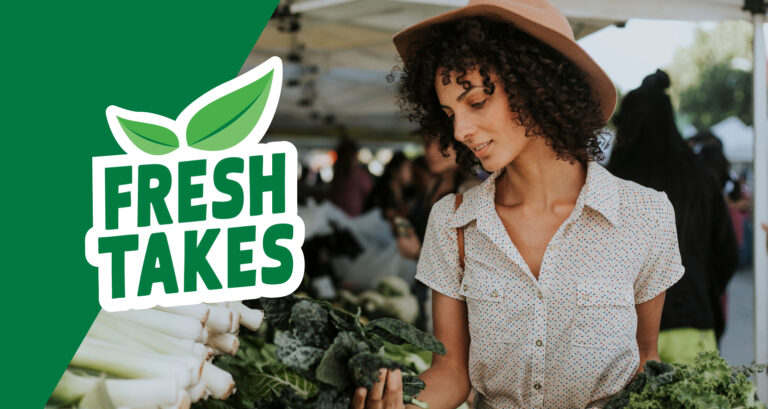Farmers’ markets are a great way to support local farmers and enjoy seasonal produce at its best. Shopping locally helps reduce waste and promotes sustainability, while giving you the opportunity to discover new flavors and ingredients. Let’s dive into how farmers’ markets can fit into your routine, from finding fresh, seasonal produce to learning ways to store it for maximum freshness and longevity.
THE BENEFITS OF SHOPPING AT FARMER’S MARKETS
Farmers’ markets are the heart of many communities, providing a direct link between consumers and local farmers. Shopping at a farmers’ market helps you:
- Reduce carbon footprints: By buying locally grown food, you cut down on the environmental impacts of transporting produce across long distances.
- Support local economies: Your purchase goes directly to local farmers and artisans, contributing to the financial health of your community.
- Enjoy fresher, more flavorful produce: Seasonal, locally grown food is often more nutrient-dense because it is picked at the peak of ripeness and sold soon after harvesting.
FRESH, SEASONAL TACOS: A FARMER’S MARKET FAVORITE
Tacos are one of the easiest ways to turn your farmers’ market haul into a quick, delicious meal. From peppers and onions to tomatoes and fresh herbs, tacos are endlessly customizable with whatever produce is in season.
They’re also a great way to use up what’s in your fridge — helping you reduce food waste while enjoying a flavorful, colorful dish.
Click here to watch the cooking tutorial.
FIND YOUR LOCAL FARMER’S MARKETS
Support your community by shopping at local farmers’ markets for fresh, seasonal produce. Visit SWACO’s list of local markets to find one near you and enjoy the benefits of locally grown food.
MAXIMIZING SHELF LIFE: STRONG PRODUCE FOR LONGEVITY
Once you’ve picked up your fresh produce from the farmers’ market, knowing how to store it properly is key to getting the most out of your purchase. Proper storage helps extend the shelf life of your fruits and vegetables and reduces food waste. Here are some helpful tips from our Food Storage Guide:
- Leafy Greens: Store greens like spinach and lettuce in a clean, dry paper towel and place them in a sealed container or produce bag in the fridge to maintain freshness.
- Cucumbers: Store cucumbers in the fridge, ideally in the crisper drawer or a produce bag to maintain moisture and crispness.
- Carrots: Refrigerate whole carrots in a breathable bag and cut carrots in water.
- Root Vegetables: Store root vegetables in a cool, dark place. Keep them in a breathable bag or open container to prevent moisture buildup.
- Berries: Keep berries in their original container in the fridge and only wash them right before using them. If you have extra, freeze them for later use in smoothies or desserts.
- Potatoes and Onions: Store potatoes and onions in a cool, dark place away from sunlight. Keep them in separate containers to prevent early sprouting or spoilage.
_______________________________
By properly storing your fresh produce, you can reduce food waste and make your farmers’ market purchases last longer — helping you enjoy the freshest ingredients, while protecting the planet. Get more expert tips on shopping locally and making the most out of your meals at SaveMoreThanFood.org/FreshTakes.
